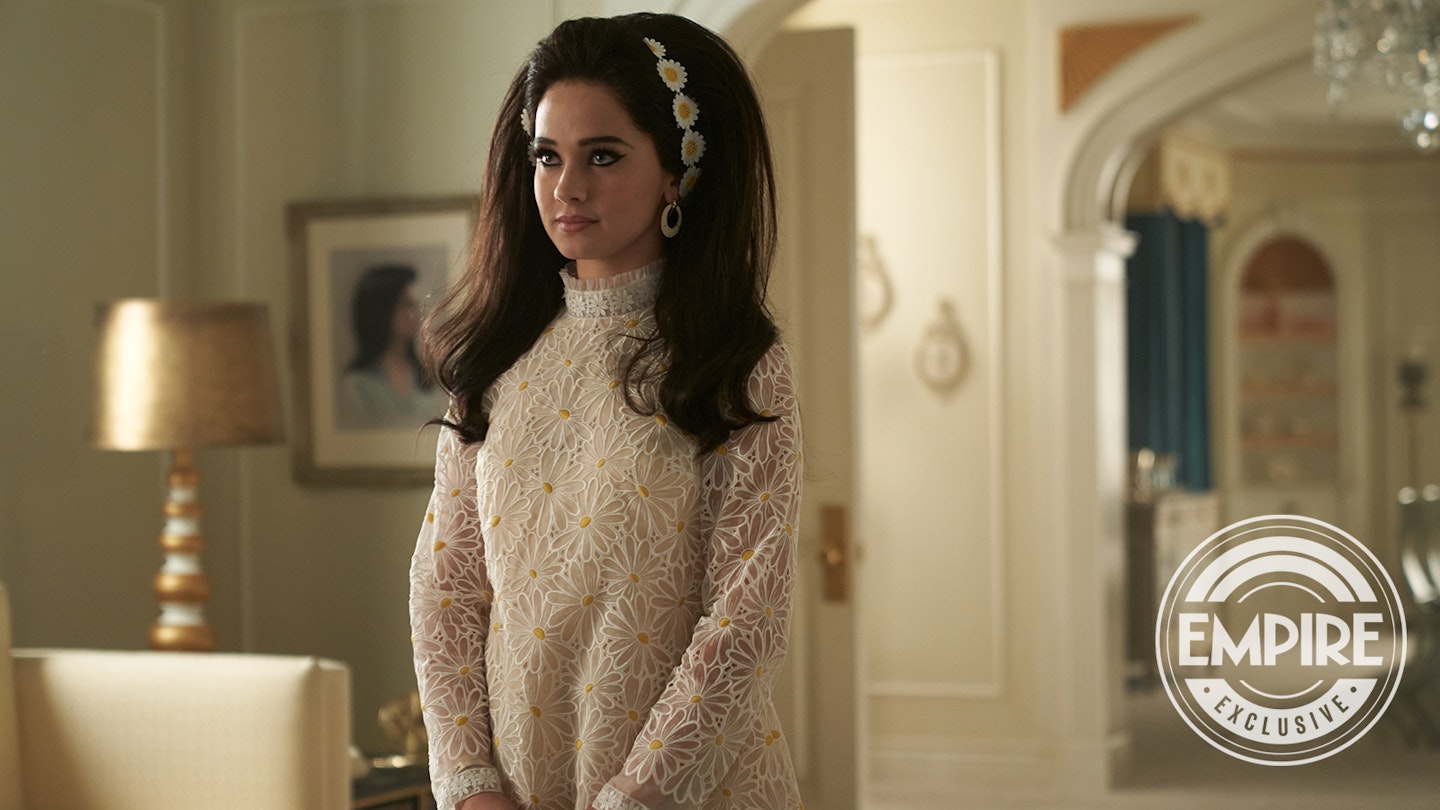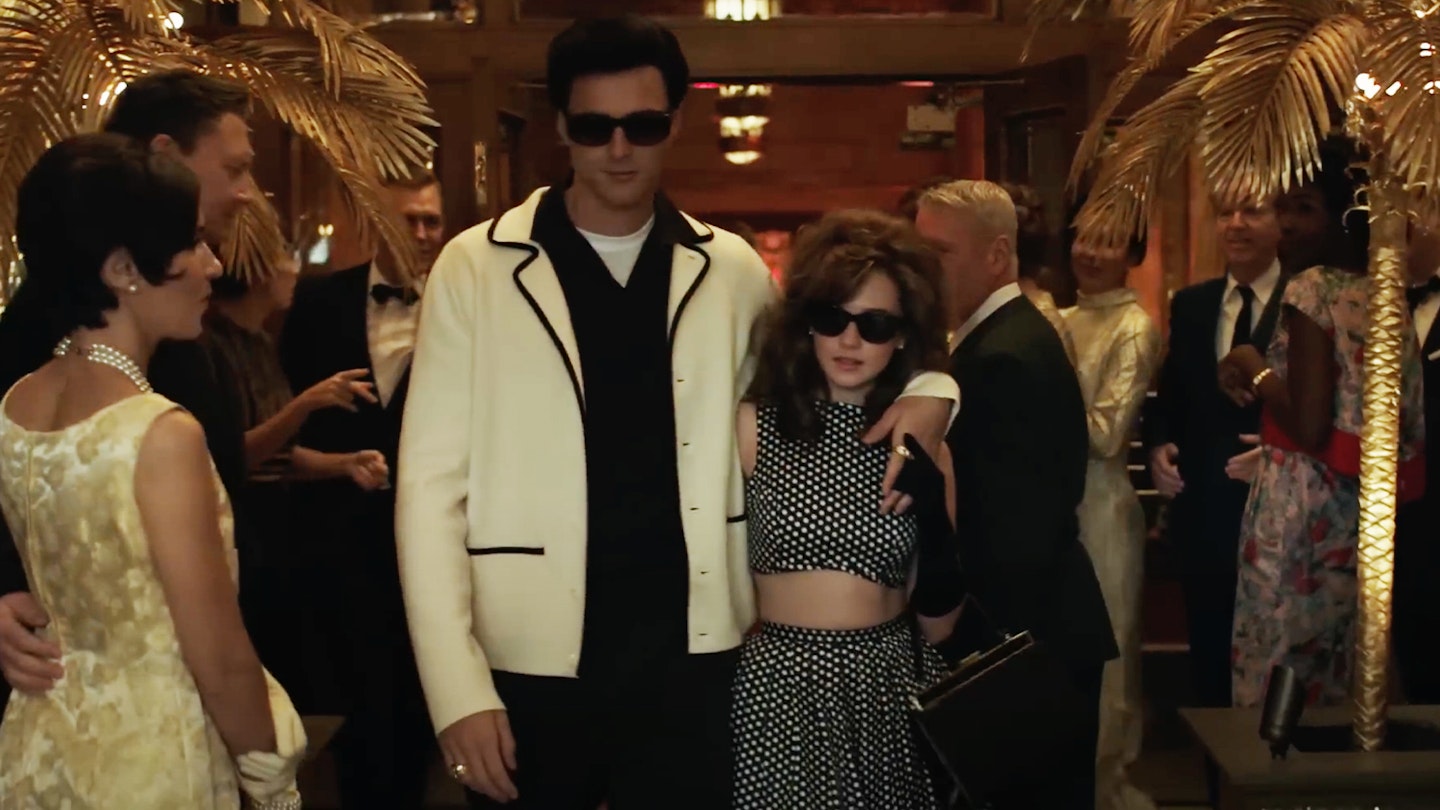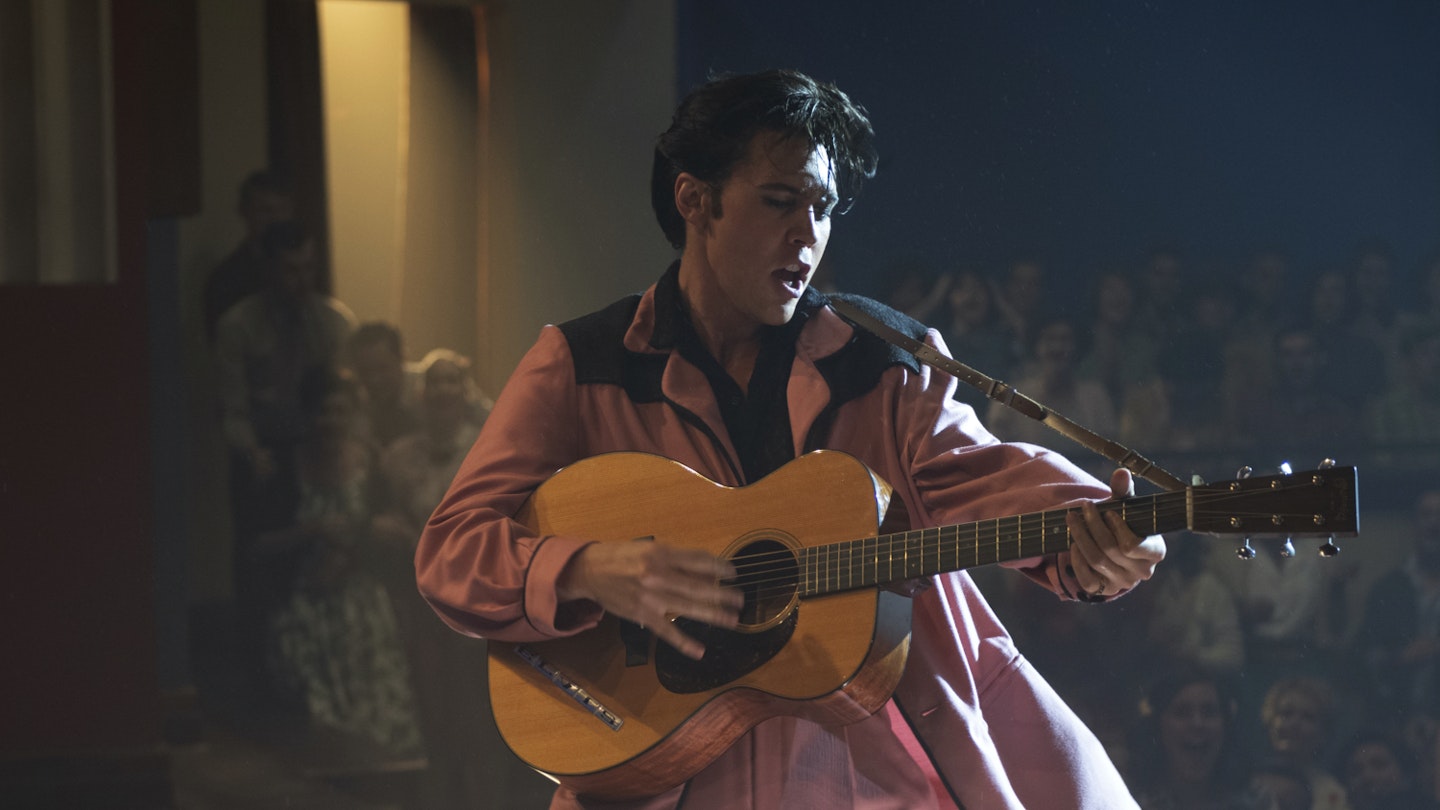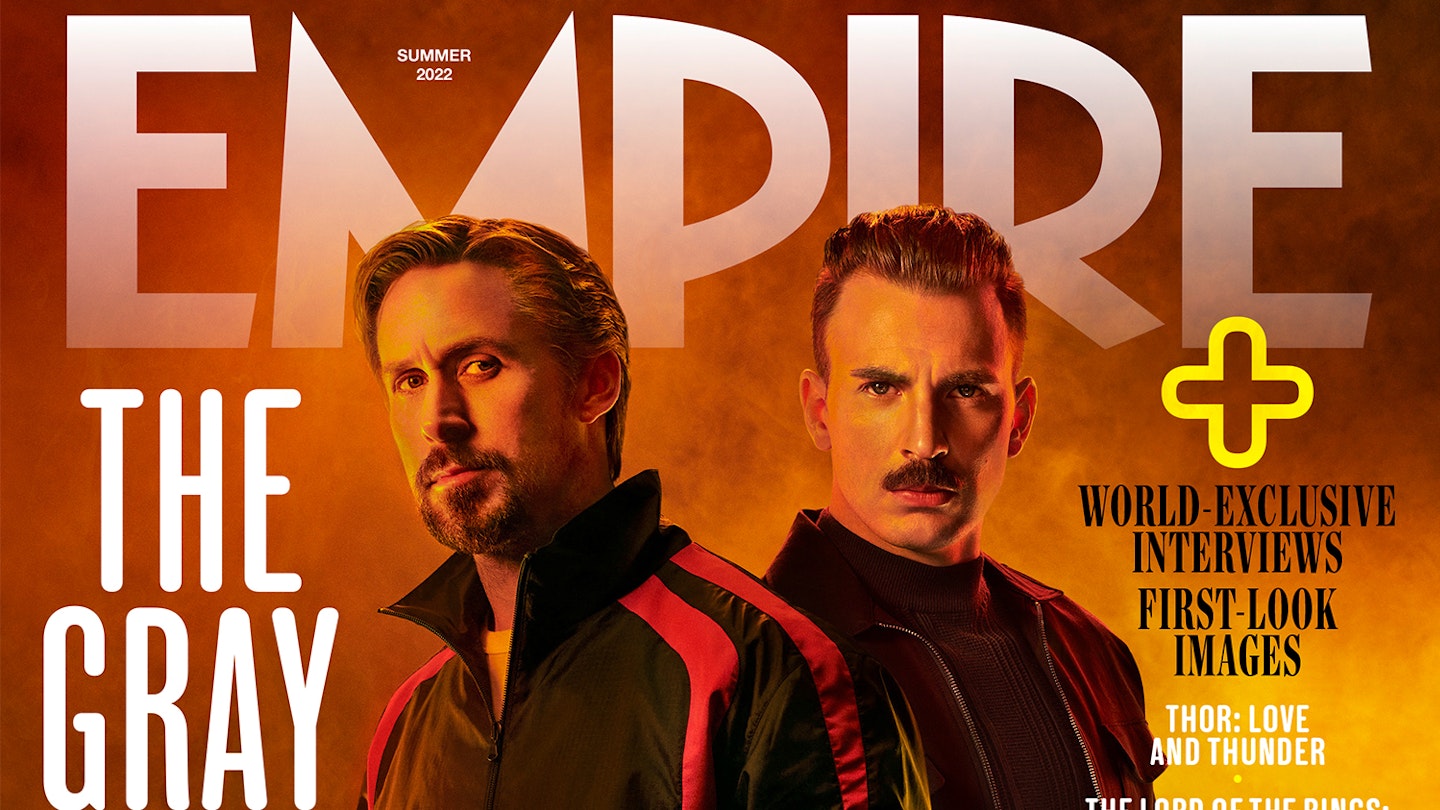It’s been close to a decade since Baz Luhrmann’s last movie. Any question that time may have mellowed him is answered within the first few minutes of Elvis; even by Luhrmann’s usual standards, the first act of this biopic is frantic with filmmaking acrobatics. Rat-a-tat editing. Dream sequences. Animated sequences. Loop-di-loop camera moves. Incongruous modern soundtrack. He immediately puts his foot down and goes racing through the life of Elvis Presley. It’s one hell of a ride, but sometimes it’s moving too fast for his audience to get more than a passing look at his characters.
Luhrmann’s ambitions are laudably grand. He follows Presley’s (Austin Butler) life from his teens, when he’s discovered playing alongside tired country music acts, to his final days as a bloated drug addict, so exhausted he can’t even hold his own microphone. That’s not where Luhrmann stops. He also tells the story of Colonel Tom Parker (Tom Hanks), Presley’s manager, who is depicted as a scheming villain who never misses an opportunity for a buck and puts money before Presley’s happiness. And further aims to show how America changed during Presley’s career, from the ’50s to the ’70s, especially for Black people, who Presley both supports and exploits, casually pinching influences from Black artists. Trying to squeeze in so much, even over a 159-minute running time, it’s not surprising that much of it feels rushed.
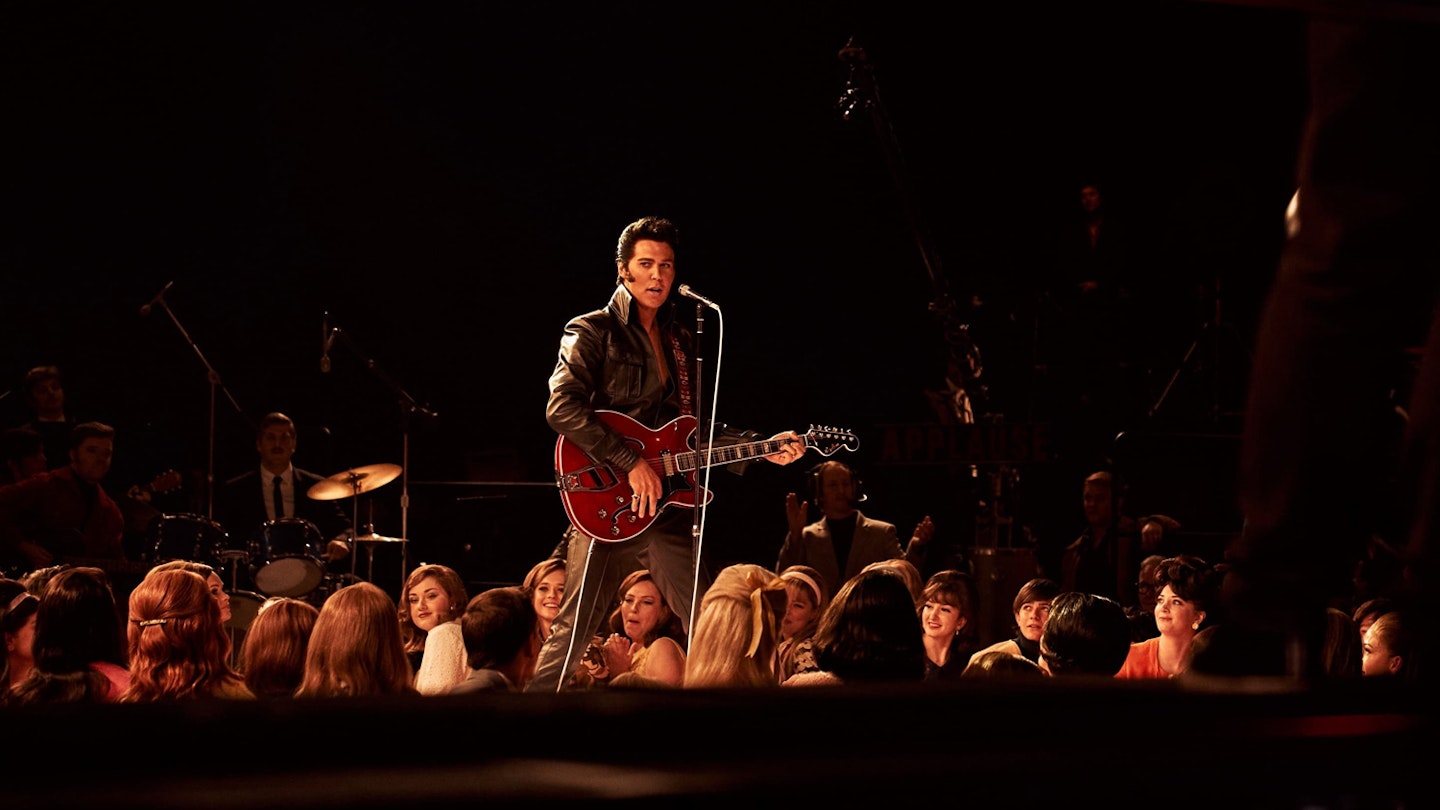
Luhrmann’s ‘more is not nearly enough’ style is at its most effective when he’s dealing in broad, simple emotions. In Moulin Rouge! or Romeo + Juliet, tales of desperate love at first sight, his explosive rhythms and romantic excess amplify all the primal yearning. It’s when he has to pause to contemplate subtler feelings that his confidence seems to desert him. His Great Gatsby was a dud because he showed little care for anyone’s interior lives. He was just there for the party. Elvis is no dud, but it again exposes Luhrmann’s disinterest in digging below the surface.
Presley’s story is told on a soap-operatic scale, towering highs or miserable lows, and little between. The relationship between Parker and Presley feels underexplored, with the otherwise smart Presley just in dumb thrall to a man clearly manipulating him. In scenes about Presley taking songs from the mouths of Black artists, Luhrmann doesn’t give a single Black character a significant voice, a surely unintended irony.
Austin Butler is sensational as Presley. He convinces at every age, from teen to 42.
Where Luhrmann absolutely excels, making some of the best work of his career, is in showing the addictive but destructive romance between Presley and his live audience. The performance sequences are a triumph. In Presley’s first live show we see how lust spreads through the crowd like a virus, girls screaming back at him in a way he doesn’t quite understand but loves. Both become hooked. As the film, and Presley’s career, go on, the audience grows into an insatiable animal, devouring more and more of Presley’s energy as he itches for another hit of adoration, prepared to surrender everything for it. There’s a manic, sexy, almost dangerous vigour to these scenes, which tell us more about Presley’s inner self than the rest of the film.
Austin Butler is sensational as Presley. It’s a huge ask for an actor to disappear into a man so well known that everyone and his uncle does a bad impression of him. Butler convinces at every age, from teen to 42. He’s not a particularly close visual match for Presley but he’s mastered vocal inflections and imperceptible details in Presley’s moves on stage that mean he captures his presence. More importantly, he gives a sense of a person, with normal insecurities, beneath the public image. Even if Luhrmann shies away from finding out who that normal person is, Butler suggests he’s there. Hanks’ Parker is written cartoonishly and he plays it appropriately. It’s not realistic but it’s entertaining.
Nobody comes to a Luhrmann film hoping for something under the top. His Elvis has all the dazzle and bombast you could ask, but it presents a portrait of an icon — not of a flesh-and-blood man.

